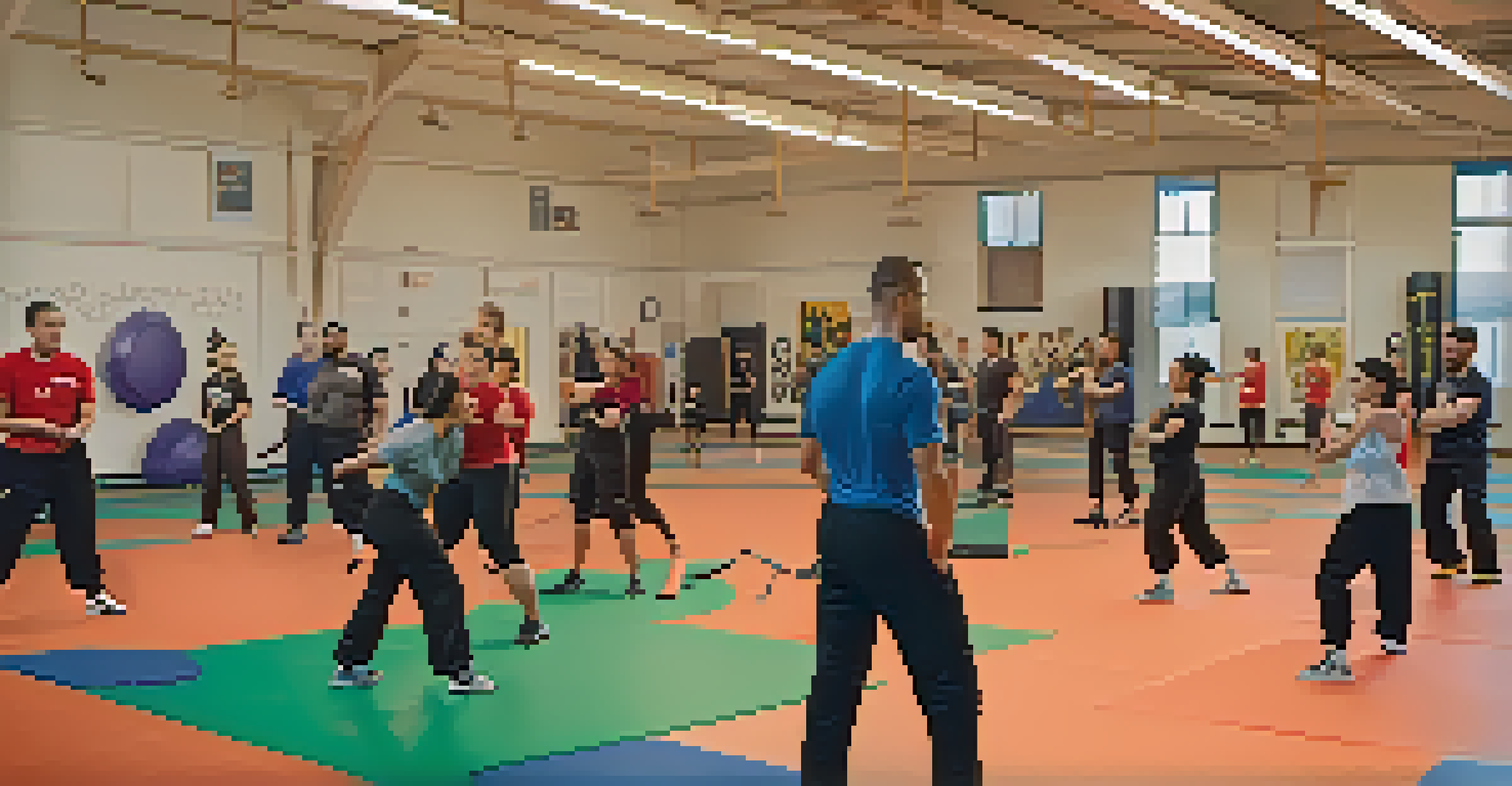Understanding Self Defense through Emotional Intelligence Skills

What is Emotional Intelligence and Why It Matters
Emotional intelligence (EI) refers to the ability to understand and manage your own emotions while recognizing and influencing the emotions of others. It plays a crucial role in self-defense by enhancing your awareness of both your feelings and those around you. For instance, a person with high EI can read a room and sense when tensions are rising, allowing for a proactive approach to conflict.
Emotional intelligence is the ability to use emotion to help think and to help think to understand emotion.
In self-defense situations, emotional intelligence can help you stay calm under pressure. Instead of reacting impulsively, you can assess the situation more effectively. Think of it like being a thermostat, where you can regulate your emotional temperature rather than being a thermometer that simply reacts to the environment.
Ultimately, developing emotional intelligence can empower you not just physically, but also mentally, enabling you to navigate potentially dangerous situations with greater confidence and clarity.
The Connection Between Emotions and Physical Responses
Emotions can trigger physical responses in our bodies, often referred to as the 'fight or flight' response. When faced with a threat, our body releases adrenaline, which can cloud our judgment. By understanding this connection, you can learn to control your emotions and bodily reactions, making it easier to respond effectively in self-defense situations.

For example, if you feel fear rising, instead of letting it overwhelm you, you can use emotional intelligence to ground yourself. Deep breathing or focusing on your surroundings can help you regain control and assess your options. This awareness allows you to act rather than react, which is crucial in self-defense scenarios.
Emotional Intelligence Enhances Safety
Developing emotional intelligence helps you manage your emotions and recognize those of others, which is crucial in self-defense situations.
Recognizing your emotional triggers not only helps in self-defense but can also improve your everyday interactions. It's about learning to manage stress in a way that enhances your decision-making capabilities when it counts the most.
Building Self-Awareness for Better Decision Making
Self-awareness is a key component of emotional intelligence and is essential for effective self-defense. Knowing your strengths and weaknesses allows you to make informed decisions about when to stand your ground or when to disengage. This self-reflection helps you identify the types of situations that may escalate into conflict.
In the midst of movement and chaos, keep stillness inside of you.
Consider the difference between being overly confident and having a realistic view of your skills. A self-aware individual understands their capabilities and limitations, allowing them to navigate conflicts with a balanced perspective. This awareness becomes a powerful tool in deciding how to respond to threats intelligently.
Additionally, self-awareness fosters empathy, enabling you to understand the emotions and motivations of others. This understanding can help you de-escalate situations before they turn violent, making self-defense less about physical confrontation and more about communication.
The Role of Empathy in Conflict Resolution
Empathy, the ability to understand and share the feelings of another, is a vital aspect of emotional intelligence in self-defense. By putting yourself in someone else's shoes, you can better understand their motivations, which can help defuse potentially dangerous situations. Empathetic responses can turn a volatile confrontation into a calm dialogue.
Imagine a scenario where someone is angry and confrontational; by empathizing with their frustrations, you can address their concerns rather than escalating the conflict. This approach can often lead to a resolution without the need for physical self-defense.
Self-Awareness Aids Conflict Decisions
Being self-aware allows you to understand your strengths and weaknesses, enabling better decision-making in potentially threatening encounters.
Moreover, practicing empathy in everyday life not only enhances your self-defense skills but also enriches your personal relationships. It creates a more supportive environment, reducing the likelihood of conflicts arising in the first place.
Recognizing and Managing Stress in Threatening Situations
Stress management is another critical skill linked to emotional intelligence. When faced with a threat, stress can impair your ability to think clearly and act decisively. Learning how to manage stress effectively allows you to maintain composure during challenging moments, which is crucial in any self-defense situation.
Techniques such as mindfulness, visualization, and focused breathing can help mitigate stress responses. For instance, visualizing a successful outcome can help you feel more confident and prepared, reducing anxiety in potentially dangerous situations.
By prioritizing stress management, you not only enhance your self-defense capabilities but also improve your overall well-being. A calm mind is far more effective in evaluating threats and deciding the best course of action.
The Importance of Active Listening in Self-Defense
Active listening is a key element of emotional intelligence that can greatly enhance your self-defense skills. By truly listening to what others are saying, you can gain valuable insights into their intentions and emotional states. This skill can help de-escalate conflicts before they turn physical.
For example, if someone is expressing their frustrations, acknowledging their feelings can create a connection that diffuses tension. When people feel heard, they are often more willing to reconsider their aggressive stance, which can prevent confrontation.
Empathy Reduces Violent Confrontations
Practicing empathy can defuse conflicts by helping you understand others' motivations, often leading to resolution without physical self-defense.
Incorporating active listening into your self-defense repertoire not only improves your conflict resolution skills but also fosters better communication in all areas of life. It’s about creating a dialogue rather than a power struggle.
Applying Emotional Intelligence in Real-Life Situations
Putting emotional intelligence into practice in self-defense scenarios involves a blend of awareness, empathy, and communication. Whether you’re in a heated argument or face-to-face with a potential threat, these skills can guide your responses. The more you practice, the more instinctual these skills become.
Consider role-playing exercises or self-defense classes that emphasize the importance of emotional awareness. These simulations can help you apply emotional intelligence in a safe environment, preparing you for real-life situations where you might need it.

Ultimately, self-defense isn't just about physical techniques; it's about understanding yourself and others. By honing your emotional intelligence, you’re better equipped to handle conflicts calmly and effectively.